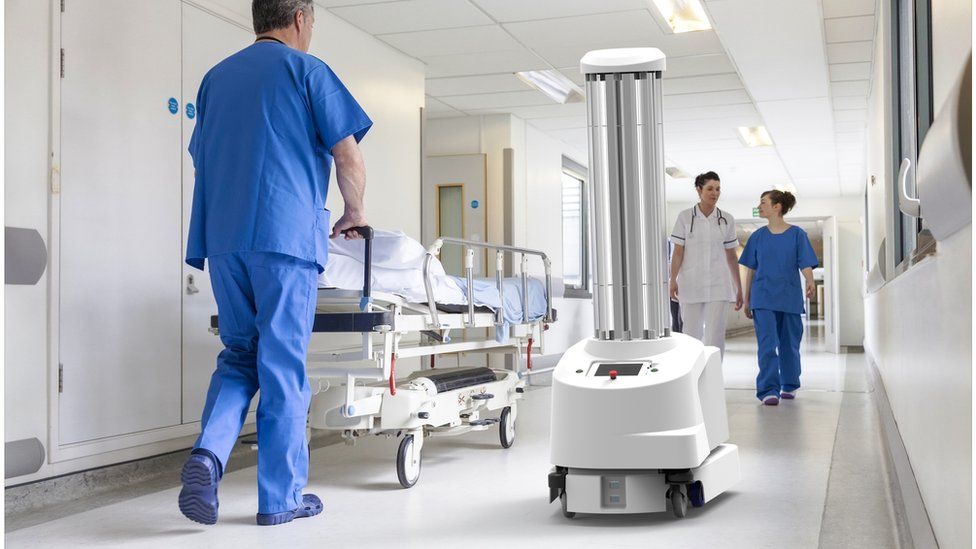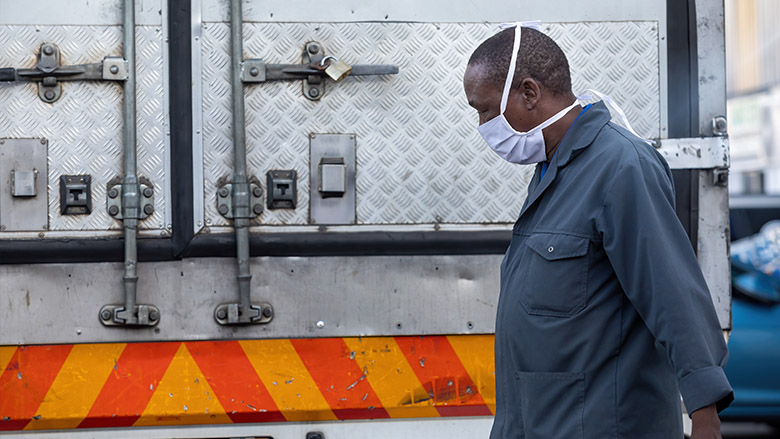Post-COVID, as the World Economy Turns to 'Normal'
"It's very easy after a gruelling year or more to feel really relieved that things are back on track.""But a lot of the effects that we see historically are often for decades and are not easily addressed."
Vellore Arthi, University of California, Irvine"Getting back to the pre-COVID standard will take time.""The aftermath of COVID isn't going to reverse for a lot of countries. Far from it."
Carmen Reinhard, chief economist, World Bank"Innovation supports higher productivity growth, and new investment raises living standards.""Key too are strategies to keep and train workers to take advantage of the higher productivity opportunities."Catherine Mann, chief economist, Citigroup Inc."There's genuine uncertainty over how much people's behaviour in terms of consumption patterns changes as a result of this crisis.""If people go back to eating in restaurants, doing leisure travel, working out in gyms then a lot of those industries will revive.""But it's also possible that people's tastes just genuinely change, in which case there is going to be transitionally more unemployment and there's no good government fix for that."Adam Posen, president, Peterson Institute for International Economies
 |
| UVD-Robots, which makes cleaning robots for hospitals, has had hundreds of new orders since Covid-19 broke out UVD Robots |
Economists taking a long view of the world economic situation looking to a COVID-free future entertain doubts of the kind of universal recovery that will take shape across the globe. A whopping $26-trillion of crisis support linked with the presence of COVID vaccines managed, to the surprise of many, to fuel a quicker recovery than had been anticipated. That, in the face of another reality, that the legacy of education in abeyance, job disappearances, crippling debt levels and greater inequalities hobbling ethnic groups, genders, generations and geographies strikes a discordant note.
The first half of the equation will benefit advanced economies, the second half will burden the poorest nations. Last year, the overall decline in gross domestic product represented the largest descent since the Great Depression. According to the calculations of the International Labour Organization, 255 million workers lost their full-time employment. The global middle class, according to research at the Pew Research Centre, shrank for the first time, since the 1990s.
A scorecard of 31 metrics across 162 nations devised by Oxford Economics Ltd, emphasizes how unevenly the costs will fall with the Philippines, Peru, Colombia and Spain representing economies most vulnerable to long-term struggles. Those countries most likely to emerge with considerably less scarring have been identified as Australia, Japan, Norway, Germany and Switzerland. Economies less affected by the coronavirus this year and beyond will not be affected as deeply.
Greater suffering will be experienced by low-income countries and emerging markets, in contrast to the 2008/9 recession when it was the rich nations that bore the brunt of the global recession. Supported by trillions of dollars in stimulus, projections indicate little residual scarring for the world's largest economy, as a result of the pandemic, with U.S. GDP forecasted to be larger than projected from before the emergence of COVID-19, according to the International Monetary Fund.
 | |
| A worker wears a mask in Sub-Saharan Africa. © Lucian Coman/Shutterstock |
"A decade of global growth disappointments" is on the horizon -- warned the World Bank in its January report -- should corrective action not be taken. Global output, it estimated, was on course to be 5 percent lower by 2025 than its pre-pandemic trend. Countries quick to control the virus warn of the uneven road that lies to the future. As an example, New Zealand's economy contracted in the last three months of 2020, caused by the absence of foreign tourists. The country that consistently topped Bloomberg's COVID resiliency rankings now faces the prospect of a double-dip recession.
The use of robots has been accelerated by the crisis, in both manufacturing and in the services industry, reflecting the need for both workers and customers to be protected from the spread of the SARS-CoV-2 virus. Looking ahead to a revival in productivity growth spurred on by the prospect of greater robotic usage, in the process millions of jobs are on the line. The question of whether new ones will be created in the changeover, a blank slate.
In eight of the world's largest economies, over 100 million people may be faced with a need by 2030 to change their occupations ... and those most likely to suffer from gaps in their skill levels are identified as the less educated, women, ethnic minorities and the young. Skills tend to atrophy, in a process known as hysteresis, the longer people are out of the workforce.
"A lot of those jobs are gone forever.""Low-wage job in marginal companies or marginal sectors are gone as the companies have gone bankrupt or the sectors have been hollowed out.""A lot of the more-adaptive companies will have filled the void, but with fewer workers."Eric Robertson, global head of research, Standard Chartered PLC
 |
An Amazon Fulfillment Center in Washington state. Workers have partnered with machines |
Labels: Innovation, Job Losses, Post-COVID, Robotics, World Economy

0 Comments:
Post a Comment
<< Home